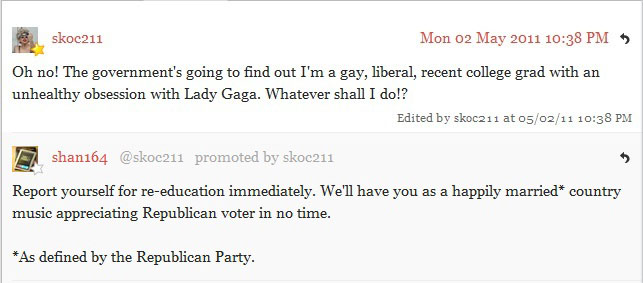Last December Time Magazine announced Facebook CEO Mark Zuckerberg as the Person of the Year in its annual selection. This happened despite the overwhelming lead in the publication’s reader poll by the WikiLeaks founder Julian Assange (Multi-billionaire Mark came only tenth, just behind The Unemployed American). The official choice led to a semi-strong backlash against Time editors, who were accused of ignoring their own readers, as well as self-censorship. No one, however, expected Assange to get back at the social networking king several months later.
Earlier last week the eccentric Australian spoke to Russia Today and named Facebook the “most appalling spying machine that has ever been invented”. Assange went as far as suggesting that along with Google and Yahoo, Facebook has an actual built-in interface for US intelligence to get personal data on the users. Thus, in a strange and ironic twist Assange became an advocate for online privacy. We are talking about the very man, who openly gathers and disseminates others’ private information. Of course I realize that there is a difference between the privacy of a regular Joe and the secrecy of a government machine, but still… There is no denying that the surfacing of classified data may potentially place at risk thousands of innocent people.
Nevertheless, considering the amount of irrelevant or simply boring information found in thousands of diplomatic cables released, the famous whistleblower might actually be on to something. After all, now we know that American diplomats across the globe are not much different from the people on our friend-lists. Apparently, instead of sending holographic bomb schematics to their eye-patched bosses, they share observations on ego-driven habits of politicians surrounding them. Oh, the excitement!
On a more serious note, WikiLeaks information was instrumental in the Arab Spring developments. At the same time some of the uprisings in the Middle East were dubbed in the media as Facebook Revolutions. This ought to show that Mark Zuckerberg’s creation played as historic a role in shaping up the new face of the region as did Assange’s. Yet, the controversial activist chooses to dismiss (or at least not acknowledge) this fact altogether.
Getting back to the privacy issue. All the rights-and-freedoms talks aside, we should really stop pretending that intelligence agencies cannot get all the private data they want without using Facebook. In fact, it is more comforting to believe they did have some means of collecting information prior to 2004. Sure, it must be easier now, with everyone hanging out at the same place online, but what do the Bonds and Bournes really learn in addition to the data already harvested from our tax forms?
That’s right; as much as the prospect of the authorities finding out about my FarmVille habits petrifies me, I am pretty much ready to let it slide. Also, I want to tell all the community site users out there that unless we really want to bore government spies to death with information about our music choices and cooking tastes, we are pretty much safe. There are plenty of platforms around, created specifically for the discussion of conspiracies and/or human rights issues. Scanning them would be of much more use for the Big Brother, than going through millions of social networking profiles looking for… something/anything. More importantly, we are all adults with clear comprehension of what should and shouldn’t end up on the web (hopefully).
All the joking aside; once you realize that what you do is important enough to the point of raising serious concerns about privacy and security, perhaps that’s when you should consider private social networks. Until then, please refrain from updating your statuses with detailed plans of the CIA Headquarter infiltration.



